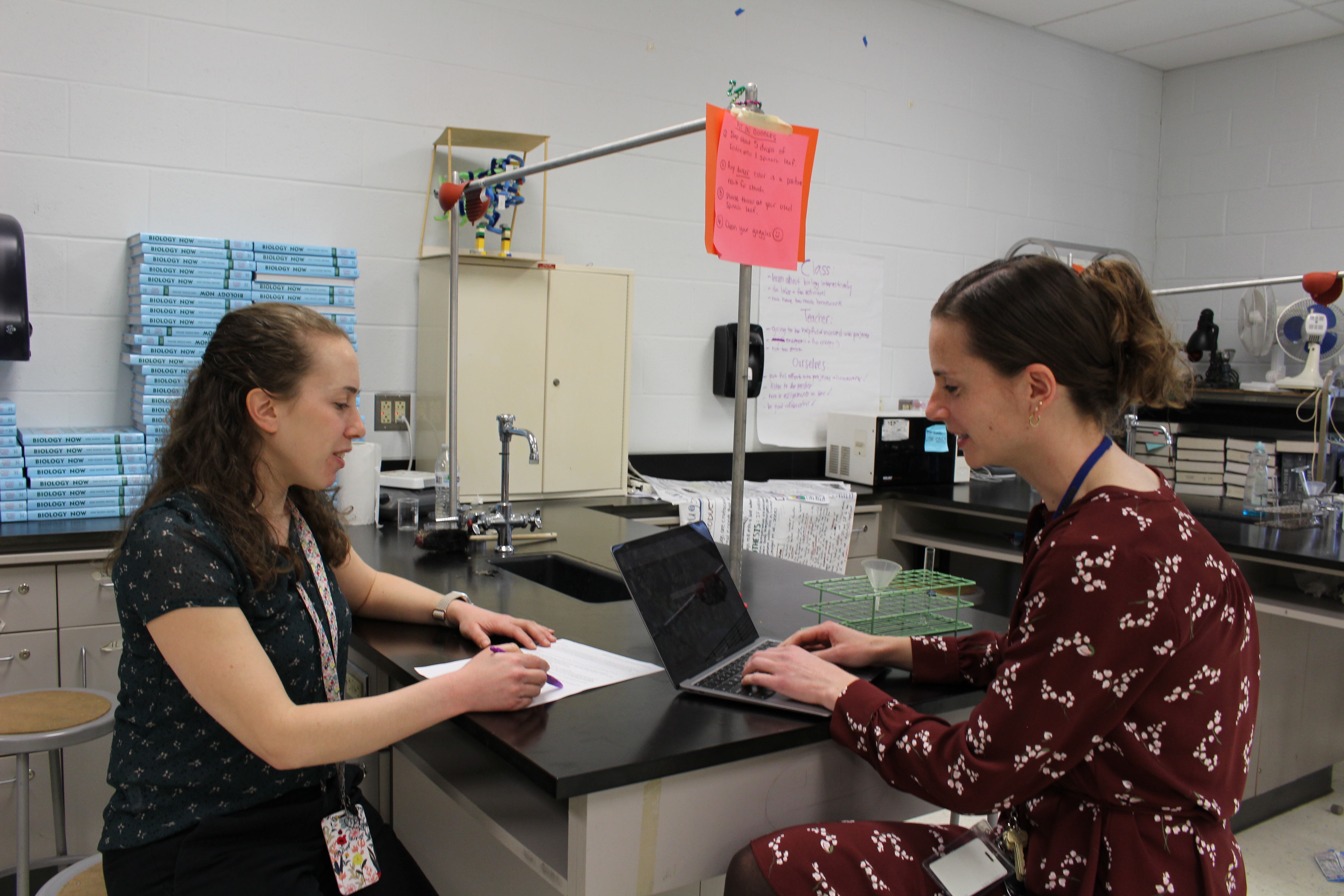In February, PHS science teachers Jacqueline Katz and Jennifer Smolyn published an article in The Science Teacher, a prestigious peer-reviewed journal of the National Science Teachers Association (NSTA). Within the publication, they outline a novel approach to developing scientific literacy and critical thinking skills in the high school setting, specifically describing a lesson utilized within PHS’s Research Program.
“Essentially, we’re trying to get students to think and act like scientists in the field,” said Katz. “We’re trying to build those thought practices in our students and give them chances to employ those skills.”
To achieve this, Katz and Smolyn emphasize the value of challenging students to read full scientific journal articles and engage in peer mentoring, expectations that are not common in typical high school science classes. Additionally, the lesson seeks to improve certain underlying skills: students’ abilities to extract main ideas from primary source literature, support claims with data, analyze bias, and communicate information clearly.
“These [skills] are everyday practices in the world of science. But sometimes, they get overlooked as a key focus in the science classroom because we’re worrying about learn[ing] content [rather than developing] the skills that were needed to discover that content,” Katz said.
Inspired by their own graduate research experiences, Katz and Smolyn introduced the lesson seeking to emulate the research process of scientists. Thus, the lesson will teach students how to better understand and extract information from research articles so that they can form more insightful and complex questions and conclusions that they can then incorporate into their own research projects.
Although the lesson outlined in the article is only taught within the research program, the science teachers stress that these practices are universally applicable to all students, including those in traditional classes.
“Those are skills that translate no matter what field you go into. You will still need to assess information that you [are] exposed to and make decisions about your health, about the climate, or about anything,” said Smolyn. “Even if you’re not a scientist, you can still utilize these skills to help you make decisions for your own life in the future.”
As such, the teachers are integrating some elements of the lesson into regular science classes, namely biology, to ensure students outside of the research program also have exposure to the fundamental skills of scientific literacy.
“With each unit, [instead of] providing students with complete research papers, we take some of the information from journal entries just to give them some initial exposure to how science is communicated when it’s not coming at [them] in a TikTok video or a news blurb,” said Smolyn. “We spend four weeks reading these papers in the research program and in an ideal world, we would love to do it in all our classes.”
